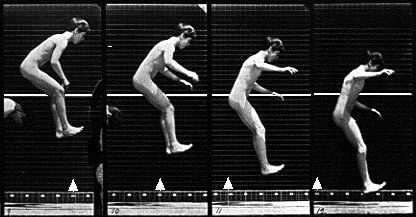
Fashioning the Body: Versions of the Citizen, the Self, and the Subject
The Evergreen State College | Fall 2007-Winter 2008
User Login |
EventsMonday, October 15, 2007
Start: 19:00
End: 21:00
David Halperin Lecture, Com Building RECITAL HALL, 7:00, Monday 15 October 2007 David Halperin is W. H. Auden Collegiate Professor of the History and Theory of Sexuality at the University of Michigan. His research interests include:the history and theory of homosexuality; classical studies and its relation to contemporary cultural history; gay men's social practices and cultural identifications. Read about his book Saint Foucault In his groundbreaking work How to Do the History of Homosexualty (2002) David M. Halperin revisits and refines the argument he put forward in his classic One Hundred Years of Homosexuality: that hetero- and homosexuality are not biologically constituted but are, instead, historically and culturally produced. How to Do the History of Homosexuality expands on this view, updates it, answers its critics, and makes greater allowance for continuities in the history of sexuality. Above all, Halperin offers a vigorous defense of the historicist approach to the construction of sexuality, an approach that sets a premium on the description of other societies in all their irreducible specificity and does not force them to fit our own conceptions of what sexuality is or ought to be.Dealing both with male homosexuality and with lesbianism, this study imparts to the history of sexuality a renewed sense of adventure and daring. It recovers the radical design of Michel Foucault's epochal work, salvaging Foucault's insights from common misapprehensions and making them newly available to historians, so that they can once again provide a powerful impetus for innovation in the field. Far from having exhausted Foucault's revolutionary ideas, Halperin maintains that we have yet to come to terms with their startling implications. Exploring the broader significance of historicizing desire, Halperin questions the tendency among scholars to reduce the history of sexuality to a mere history of sexual classifications instead of a history of human subjectivity itself. Finally, in a theoretical tour de force, Halperin offers an altogether new strategy for approaching the history of homosexuality—one that can accommodate both ruptures and continuities, both identity and difference in sexual experiences across time and space. Thursday, October 18, 2007
Start: 20:00
End: 21:30
Becoming a Man in 127 Easy Steps-OPEN DRESS REHEARSAL •••Newly added: an opportunity to see Scott and fabulous director Steve Bailey in action as they fine-tune the performance the night before the Friday show. Q+A afterwards. 8pm COM Experimental Theater • you do need to get a ticket beforehand, though students are free. [Steve Bailey is the education director and a founder of Jump-Start Performance Co. in San Antonio, Texas. He was the founder and director of 24th Street Experiment Theater Company, research coordinator for Theater Communications Group, and artist-in-residence with Teatro del Sol in Lima, Peru. Over the past thirty years, Steve Bailey has created and/or directed over fifty original productions that have been presented in the U.S. and Latin America. He is also an arts educator who has worked with numerous youth and adult groups in a variety of community settings.] • and read a great interview with Steve about his work here.
Friday, October 19, 2007
Start: 20:00
End: 21:15
"Becoming a Man in 127 Easy Steps" Performance by Scott Turner Schofield. Com Building Experimental Theater. 8pm-9:15pm. Reception following the performance. http://www.undergroundtransit.com Friday, November 9, 2007
Start: 15:30
Feminist Video Art of the 70s http://olympiafilmfestival.org/movieDetail.asp?id=44
|
Who's onlineThere are currently 0 users and 1 guest online.
|
